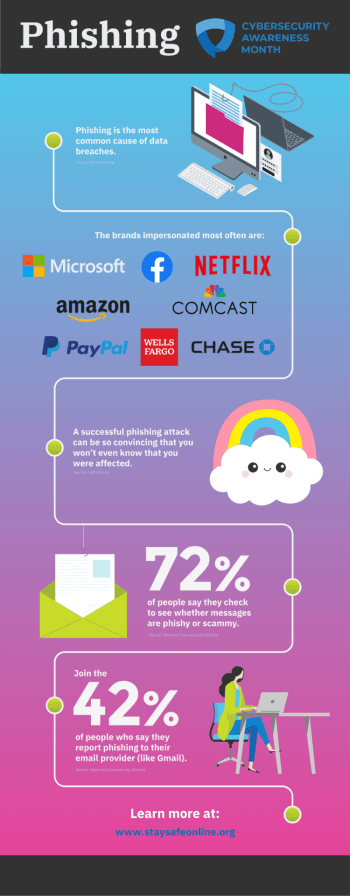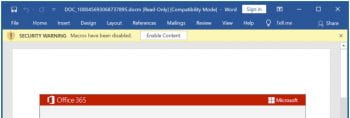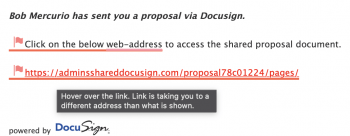When you receive a suspicious email, please report it using the Phish Alert Button (PAB) from your Outlook account. Cybersecurity Awareness Month Test Your Knowledge Competition We invite you to show us what you know by entering our Test Your Knowledge: Cybersecurity Awareness Month edition. Complete this activity to test what you know and receive an entry […]
Cybersecurity Awareness Month: Phishing




